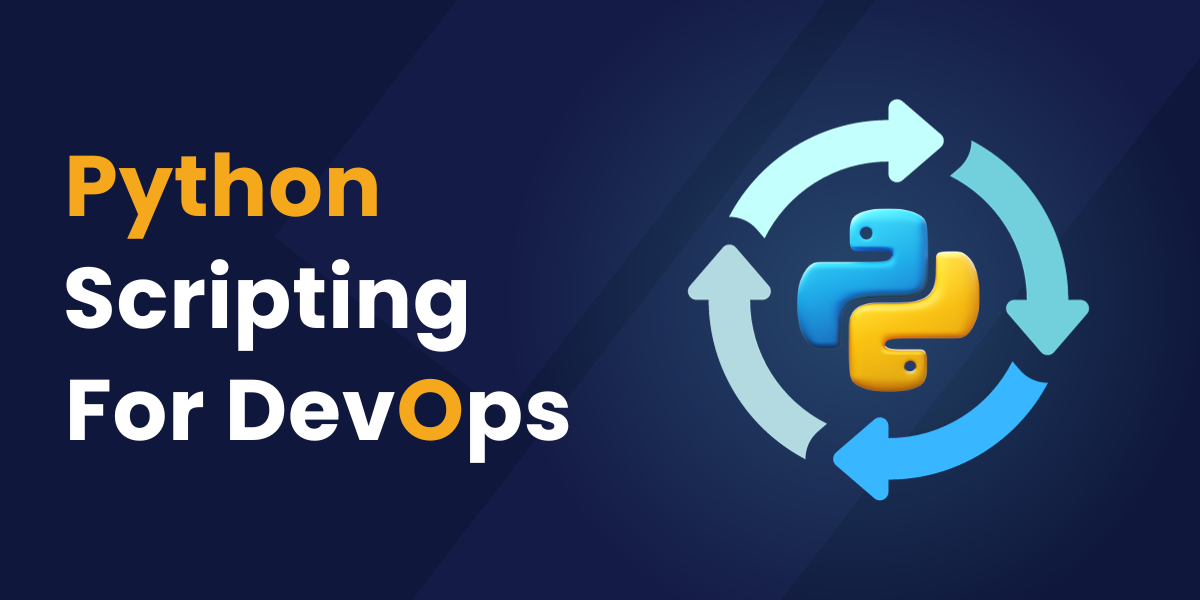Introduction
Are you interested in leveraging the power of Python in your DevOps workflows? Look no further! In this blog post, we will provide an overview of the highlights covered in our training program “Python for DevOps” by Cloudzenix. This comprehensive training will equip you with the knowledge and practical skills to excel in your role as a developer, system administrator, or DevOps engineer. Python, with its simplicity and power, has become an essential tool in the DevOps arsenal. Through our comprehensive curriculum, we aim to equip you with the skills to harness Python’s potential, making you an invaluable asset in any DevOps team.
Understanding DevOps
At its core, DevOps is all about creating a feedback loop to constantly improve the software development process. It focuses on identifying and addressing problems, defects, and outliers. DevOps involves various components such as build systems, testing, and deployment, all aimed at ensuring a better outcome. By adopting DevOps practices, you can streamline your development process and achieve more reliable results.
Why Python for DevOps?
Python’s rise in the DevOps landscape is no coincidence. Its readability and versatility make it ideal for scripting and automation – core components of DevOps. From building and testing to deployment and monitoring, Python serves as a linchpin, streamlining processes and fostering a culture of efficiency and innovation. Our course delves deep into Python’s application in these areas, offering a blend of theoretical knowledge and practical skills.
Microservices
Microservices architecture breaks down a large application into smaller, independent services, simplifying the development process. Flask, a lightweight and flexible web framework, is recommended for building Python-based microservices. It provides the necessary tools and features to handle HTTP requests, build RESTful APIs, and integrate with other services.
Infrastructure as Code (IaC)
IaC allows you to define your infrastructure using code, enabling version control, reproducibility, and automation. Python offers powerful tools for IaC, including Ansible, Terraform, and Pulumi. Ansible provides a simple and agentless automation framework, while Terraform and Pulumi focus on managing infrastructure resources across different cloud providers.
Testing
Thorough testing is crucial for ensuring the quality and reliability of your code. Python offers a range of testing frameworks and tools. Pytest is a popular testing framework that simplifies test writing and execution. It supports various types of tests, including unit tests, functional tests, and integration tests. Additionally, tools like pylint can be used to enforce coding standards and identify potential issues in your codebase.
Functions as Building Blocks
In Python, functions play a central role in almost everything you do. Whether you’re working with data using libraries like pandas or numpy, building web applications with Flask or Django, or even harnessing the power of GPUs or distributed computing, functions are essential. Python’s focus on readability and simplicity makes it a versatile language for tackling a wide range of DevOps tasks.
Topics Covered in Python for DevOps Course
In our training program Python for DevOps, we delve deeper into various aspects of DevOps and demonstrate how Python can optimize each of them. Here’s a sneak peek at the topics covered:
Chapter 1: Introduction to Python for DevOps
- Understand the role of Python in the DevOps landscape
- Set up your Python development environment
- Learn essential Python concepts and syntax
Chapter 2: Version Control with Git
- Explore the fundamentals of version control using Git
- Use Python libraries like GitPython to automate Git operations
- Integrate Git into your DevOps workflows for collaboration and code management
Chapter 3: Continuous Integration and Continuous Deployment (CI/CD)
- Implement CI/CD pipelines using popular tools like Jenkins, Travis CI, and GitLab CI/CD
- Automate build, test, and deployment processes using Python scripts
- Leverage Python libraries to interact with CI/CD tools programmatically
Chapter 4: Infrastructure Automation with Ansible
- Dive into the world of infrastructure as code (IaC)
- Use Ansible to provision and configure infrastructure resources
- Automate server setups, deployments, and configuration management with Python and Ansible
Chapter 5: Containerization with Docker
- Understand the basics of containerization and Docker
- Use Python libraries like Docker SDK for Python to interact with Docker APIs
- Orchestrate containers using tools like Docker Compose and Kubernetes with Python
Chapter 6: Monitoring and Logging
- Implement effective monitoring and logging strategies in your DevOps workflows
- Use Python libraries like Prometheus and Grafana for monitoring metrics visualization
- Centralize logs with tools like Elasticsearch and analyze them using Python
Chapter 7: Testing and Quality Assurance
- Explore different testing approaches in DevOps
- Write unit tests, functional tests, and integration tests using Python frameworks like Pytest
- Perform code analysis and linting to ensure code quality
Chapter 8: Security Automation
- Automate security testing and vulnerability scanning using Python tools
- Implement secure coding practices in your Python applications
- Integrate security checks into your CI/CD pipelines with Python scripts
Conclusion
Python is a powerful language that can significantly enhance your DevOps practices. Whether you are a developer, system administrator, or DevOps engineer, “Python for DevOps” by Cloudzenix will equip you with the knowledge and practical skills needed to excel in your role. Join us on this exciting journey as we unlock the full potential of Python in the world of DevOps!
To learn more about our training program or enroll in our “Python for DevOps” course

